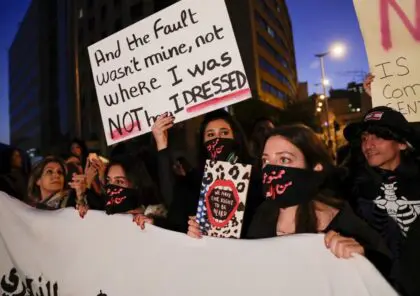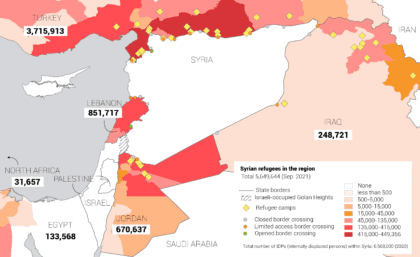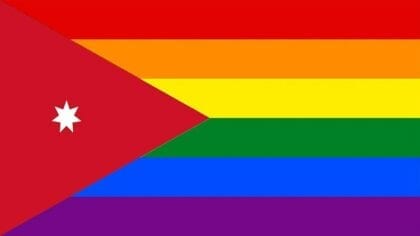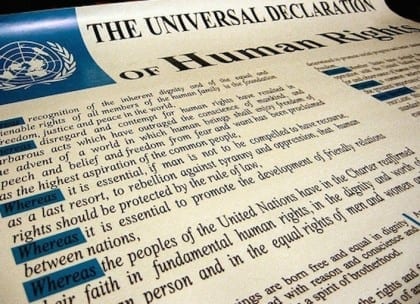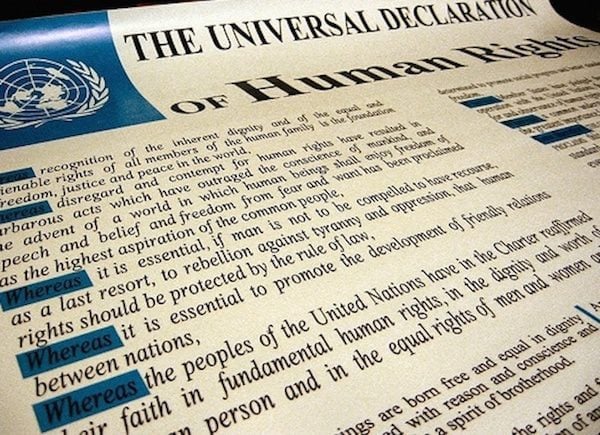
Introduction
The concept of human rights has become a well-known and widely accepted term to use. Varying interpretations are possible, with differences usually being based on cultural background. Nonetheless, most of these understandings consciously or subconsciously include the basic rights outlined in the United Nations’ Universal Declaration of Human Rights.
The United Nations General Assembly (GA) adopted the Universal Declaration of Human Rights on December 10th, 1948. It was written in the aftermath of World War II, “… as a common standard of achievement for all peoples and all nations, to the end that every individual and every organ of society, keeping this Declaration constantly in mind…” Thus it was truly meant to be universal, to protect citizens from any type of violation the world had recently experienced, as outlined in the Preamble and 30 Articles.
As such, it includes articles on the right to life in dignity; liberty and security; freedom of movement; right to nationality and education; just treatment of human beings and respect; as well as freedom of expressions and opinions, from torture or inhumane treatment, as well as economic, social and cultural rights.
International Human Rights Law
The Declaration is not legally binding, but is the basis of international human rights law. Two binding UN covenants were formed as a result of the UDHR; the International Covenant on Civil and Political Rights and the International Covenant on Economic, Social and Cultural Rights. Combined, these three documents are often referred to as the “International Bill of Human Rights”.
Over the years other conventions have been written to expand on and add to this fundament, focusing on a variety of topics such as refugees (1951 and 1967), discrimination of women (‘CEDAW’, 1979) and disabled persons (2008), against torture (1987), protection of migrant workers (1990), and against racial discrimination (1969) to name a few.
Additionally, the International Labour Organization has compiled a large number of conventions specifically related to work force and labour standards, of which 8 are considered ‘fundamental conventions’ and relate to freedom of association (1948, C087), collective bargaining (1949, C098), forced labour (1930, C029 and 1957, C105), minimum age (1973, C138), child labour (1999, C182), equal remuneration (1951, C100), equal opportunity and treatment (C111).
Geneva Conventions
The Geneva Conventions are a revision of previously constructed conventions, adjusted after WWII and specifically focus on treatment of persons in time of war. It consists of four Conventions, and three additional protocols. The International Committee of the Red Cross (ICRC) explains that the Conventions “aims at ensuring that, even in the midst of hostilities, the dignity of the human person, universally acknowledged in principle, shall be respected.”
During a series of expert meetings, congregations by Red Cross agencies, and a confluence of government representatives over time, the articles were revised until a draft was represented at The Diplomatic Conference for the Establishment of International Conventions for the Protection of Victims of War in 1949. The Final Act was signed by fifty-nine nations, some of which no longer exist, and has attained more signatories since.
The Cairo Declaration on Human Rights in Islam (CDHRI) was compiled by the Organisation of Islamic Cooperation (OIC) in 1990, during the 19th Islamic Conference of Foreign Ministers in Cairo, and has 57 signatories. This Declaration holds similar – if not identical – principles as the UDHR, but notably also included articles related to ‘jus in bello’ – acceptable wartime conduct, alike the Geneva Conventions.
The CDHRI also addresses equality between women and men, rights of the child, freedom, right to medical care, right to self-determination, amongst others. Most notably is that this 25 Article document clearly lists the Sharia as reference point including for punishment. The CDHRI has been adopted by 45 countries, out of the total 57 members of the OIC.
Conventions Signed By Jordan
Jordan signed the Conventions on 29 May 1951, and the Additional Protocol I (Protection of Victims of International Armed Conflicts) and Additional Protocol II (Protection of Victims of Non-International Armed Conflicts) on 1 May 1979. Moreover, it became signatory to the Convention for the Rights of the Child (CRC) on 24 May 1991, and signed the Optional Protocol to the CRC on 23 May 2003.
Jordan has been member of the OIC since 1969, Only one of the 8 fundamental ILO conventions has not been ratified, being the convention on freedom of association (C087).
Refugees
The Convention relating to the Status of Refugees is based off Article 14 of the UDHR, and recognizes the right of asylum and protection of refugees. It was approved during the General Assembly meeting of December 14, 1950 and came into force on April 22, 1954. However, the original Convention limited its scope to refugees fleeing prior to 1 January 1951. As such, an additional protocol was compiled in 1967, removing these limitations.
Jordan is not party to the 1951 Convention, nor its Protocol.
Women
The Convention on the Elimination of All Forms of Discrimination against Women – also called CEDAW, was approved during the General Assembly Session on 18 December, 1979 and entered into force on 3 September 1981.
Jordan signed the Convention on December 3, 1980 and ratified it on July 1, 1992. Countries that have ratified or acceded CEDAW are legally bound to put its provisions into practice, and thereby agree to submit national reports on measures taken to comply with its obligations. Such reports are to be compiled at least every four years.
Reservations made by Jordan claim it does not consider itself bound by Article 9 (2), concerning children’s nationality; Article 15 (4), listing equality of freedom of movement; Article 16 (1c), prescribing women the same rights and responsibilities during marriage and at its dissolution; and Article 16 (1d) regarding same parental rights regardless of marital status, and 16 (1g) prescribing husband and wife to have the same personal rights including choice of name and occupation.
Persons with Disabilities
The Convention on the Rights of Persons with Disabilities was approved during the General Assembly session on December 13, 2006 and came into force on May 3, 2008. Simultaneously, the Optional Protocol was approved, giving the Committee on the Rights of Persons with Disabilities (CRPD) competence to examine individual complaints with regard to alleged violations by States parties to the Protocol. The CRPD is the body of independent experts that monitors implementation of the Convention. Jordan signed the Convention on March 30, 2007 simultaneous to signing the Optional Protocol, and ratified the Convention a year later on March 31, 2008.
Torture
The Convention against Torture and Other Cruel, Inhuman, or Degrading Treatment or Punishment, also referred to as just the Convention against Torture, was adopted during the General Assembly session on December 10, 1984. On June 26, 1987 it was registered and thereby came into force. Its implementation is monitored by the Committee Against Torture (CAT), composed of ten individuals of various nationalities. All signatory states are obliged to send regular reports to the CAT, based on which recommendations are made. Jordan confirmed its accession to the Convention on 13 November 1991 with no reservations.
Migrant Workers
The International Convention on the Protection of the Rights of All Migrant Workers and Members of their Families was approved by the General Assembly on December 18, 1990 and entered into force on July 1, 2003. Jordan is not party to the Convention.
Racial Discrimination
The Convention on the Elimination of All Forms of Racial Discrimination was approved by the General Assembly and accordingly opened for signature on March 7, 1966. It entered into force on January 4, 1969. Despite the obvious as stated in the Convention title, it aims to obliterate hate speech and promote understanding. Implementation of the articles is monitored by the Committee on the Elimination of Racial Discrimination, to which bi-annual reports are submitted by each signatory. It also is responsible for handling inter-state and individual complaints related to non-conformity to the provisions of the Convention, as prescribed in Article 14.
Jordan acceded to the Convention on 30 May 1974 with no reservations.
Through “accession” a state accepts the offer or the opportunity to become a party to a treaty, which has already negotiated and signed by other states. It has the same legal effect as ratification.
Press Freedom
Although Jordan improved press freedoms in the first decade of the 21st century, Jordan’s Centre for Defending Freedom of Journalists (CDFJ) warned in its 2010 report that media freedoms in the kingdom witnessed a setback in 2009. The report, which is published annually to mark World Press Freedom Day and which polled 505 journalists in 2009, said there was an sharp increase in the number of journalists who thought press freedom in the kingdom had improved in that year.
The survey revealed that government interference had increased by 23 percent between 2004 and 2010 and that 40 percent of polled journalists believed that press freedom had decreased, while 41 percent said it had remained the same.
The survey also showed that 266 journalists (53 percent of those polled) had been harassed in various ways in 2010, compared to 39 percent in 2009, and 16 percent said their articles, reports, or news stories had gone unpublished because of pre-censorship by editors. As for news websites, 81 percent of polled journalists believed these new media outlets helped increase press freedom in the country, 77 percent said they helped defend media freedoms, and 91 percent believed they provide the public with a venue for voicing their opinions.
Amnesty International’s report Attack on the Press 2010 cited the ruling by Jordan’s highest judicial authority that allows a controversial law that imposes restrictions on the press to extend its restrictions to the work of news websites and other online media outlets.
The report said that the Court of Cessation allowed the government in January 2010 to include websites in the Press and Publications law, giving the authorities the power to impose fines or imprison writers or publishers of items that are considered insulting to religions or defamatory to the government, national unity, or the economy.
After local and international pressure, the government removed broad provisions, including searches of online outlets, and the legislation regulated a wide range of digital issues.
Latest Articles
Below are the latest articles by acclaimed journalists and academics concerning the topic ‘Human Rights’ and ‘Jordan’. These articles are posted in this country file or elsewhere on our website:





